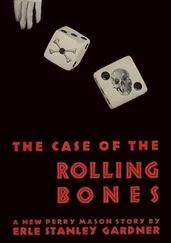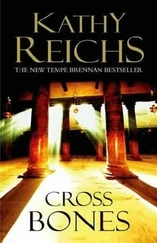‘Oh, we understand, sir,’ laughed Flo, the non-chanteuse. ‘You can be sure you’ll ’ear from us the minute she comes back from Park Lane.’
I hurried away. The smell of decay, of month-worn bloomers and stale semen, of leaking gas and bletted fruit, of lies and tidal sewage, of traded flesh and cascading rubbish bins, of twining and scrambling and greed-frenzied rats, seemed to stick to me as if it would hang around me and cling to my coat for ever. I strode through Islington like a swimmer coming up from the depths, rising up gasping, lung-burstingly, towards the light.
Letter from Mrs Moyra Davidson
Stiffkey Rectory 19 August 1930
My dear Oona,
Lovely to get your letter with all your exciting news. I am so glad Finbar’s violin lessons have paid off, it is a marvellous thing to be able to fill the house with music, I mean real music played on instruments, not just having the radio on all the time like Sheilagh and Nugent. I thought all this flapper nonsense was over and done with, but not at all. Here I am in the rectory study, trying to collect my poor thoughts and in the next room the wireless is playing Jack Hylton and his Orchestra and he’s singing ‘If I Had a Talking Picture of You’. Such nonsense. I get distracted by thinking, well, if I did have a talking picture of H, it’d be a step up from what I have now, which is a silent picture of him in the living room, a framed photograph of him sitting in a chair holding one of his big cigars and looking – well, rather more crafty than sacred, truth to tell, and sometimes when it gets too quiet around here, I wish I could make it talk to me. I’ve got used to not seeing him all week, I mean, literally all week except for Sundays. Sometimes I feel lucky if he turns up for the Sabbath itself. Sometimes it’s so late on Saturday night, I can’t be bothered waiting up for him, and I go off to bed and read lovely Charlotte Yonge instead. The first I know of the presence of the Lord is when he’s eating a boiled egg in his study on Sunday morning and trying to cobble a sermon together from a dozen scraps of paper and the Bible. And then God help me if I interrupt to tell him about the dead seagull in the chimney, or the liberties that the Du Dumaine children have been taking, using my writing paper for crayon likenesses. He’ll only shush me and wave a hand as if to say, ‘Not now, don’t bother me with this trivial nonsense.’
‘Harold,’ I say, ‘this is a home. I know it is a haven for the sick and misfortunate, a confessional for the sinful and the desperate, a place of succour and retreat for the spiritually confused. But it is first and foremost, Harold, a home, where your children live and I live, and Cook and Mrs Henryson and Enid and Polly and the dogs and, while I’m at it, Colonel Du Dumaine and his sons. It’s a home where people live whom you love or at least are supposed to love when you get five minutes to devote to them in between showing your love for your fellow man in every fiddly backstreet in London, and it’s no use your sitting there with your breakfast egg and your sermon text playing the great Shepherd with his Flock if you cannot even spend five minutes with your own domestic flock where they need you most, namely here in the home.’
He’s surprised by this unaccustomed outburst. ‘I am shocked, my dear Mimi, shocked,’ he says, wiping crumbs from his lips, ‘by this imputation of neglect. That I, who spend the lion’s share of every day the Lord sends in working for the betterment of my fellow creatures, should be so cruelly accused of failing in my duty …’ He shakes his head, like he’s trying to get my words out of his ears. ‘Would you like to suggest, in the few minutes that remain before I go to address the village congregation on matters of Heaven and Hell, where my sin of omission lies?’
All I can think to say is, ‘You’re never here,’ and ‘You never talk to me, not properly any more, and you never take me out the way people take their wives out, not even to see the pierrots at the Hunstanton Empire.’ But it sounds so foolish and trivial and clingy. I know exactly what he’s going to say, because he always brings up St Matthew: ‘Need I remind you of the ocean of want that surges all around us? It is laid down in the Gospel of St Matthew: “For I was an hungred and ye gave me meat: I was thirsty and ye gave me drink: I was a stranger and ye took me in …”’ I try to stop him around this part, because his voice takes on a bleating quality, and I know how it is going to end, but he is unstoppable: ‘“Naked, and ye clothed me; I was sick and ye visited me; I was in prison and ye came unto me.” Now my dear,’ (this is how he goes on, it drives me crazy) ‘nowhere in St Matthew, to the best of my recollection, can be found the words, “I was a touch bored at home and ye came and took me to a dinner dance in Holt.” You may search the Gospels for a month without finding the words, “I was restless and bored from spending all day gossiping with Mrs Reynolds, and ye took me to see Mr Coward in Private Lives at the Phoenix Theatre.” I must be at my work, my darling, among the genuinely conflicted and truly wretched. But that is not to say I cannot listen to your aches and woes with a sympathetic ear. Perhaps after lunch we might discuss what is troubling you.’
You see the real trouble, Oona? I have to make an appointment to see my own husband. And that casual mention of the theatre, he knows how it cuts me to the quick. It reminds me what a stage-struck pair we were when young, him on the boards with the comic monologues, me with the lovely singing voice. I was a mezzo of course.
Did I ever tell you of the first day we met, at the Oxford Playhouse? I was part of Miss Horniman’s company of Abbey Singers, and we were visiting the students from the University Drama Society. Some of us were invited to tea with the president, Sir Reginald Kennedy-Cox, and there to welcome the Irish songbirds was Harold. He stood out, not because he was tall or handsome, but because he was older than the rest of the students, properly grown-up at twenty-three or twenty-four, and he’d seen life and was a proper actor. He’d performed at the Wigmore Hall and had lived off his stage earnings to pay for his time at college. People spoke of him with respect, they called him the ‘Holy Actor’ as though it was amazing to find a theology student able to stand up onstage and declaim comic monologues about young boys being eaten by lions at the zoo. I liked him because all the evenings spent onstage had given him a very easy manner. His voice was low, never harsh nor quarrelsome, quite deep and musical, it sort of flowed along but slowly, a river of chocolate. Of course he was ‘theatrical’, but not in the way people use the word to say someone’s false and untrue, he was theatrical as a way of putting a point across. He’d fix you with his intense brown eyes, and tell you about the poor boys in the East End of London he was trying to help by setting up a club where they could get warm food and play games at nights instead of fighting. He argued the case for giving every street child a proper education and start in life and training and an apprenticeship so they wouldn’t need handouts from grand ladies such as myself, and he argued with such passionate eloquence, I was won over to the cause, to him and to his big brown eyes. As he got to the climax of his speech, I looked down and found his hand had been gripping my forearm for so long, I’d lost any feeling in it. You could have jabbed a pin into me and it wouldn’t have hurt. ‘Why, Mr Davidson,’ I said, ‘you have become quite carried away.’ Harold clutched my little white hand in his and impetuously kissed it, with the ardour of a desert sheikh. ‘I am sorry to have spoken with such heat,’ he said, ‘and sorry to feel your hand so cold. But perhaps something of what I have said has penetrated into your heart, my dear Miss Saurin.’ And of course it had, for I never knew anybody could so arouse an audience as Harold, with that voice reverberating like the throb of an Underground train. I began to fall for him at that moment, Oona, though of course there was no question of anything happening, with him being so poor and my father expecting great things for me and the Cartwright boy in Castle Lambert. But it started then all right.
Читать дальше












